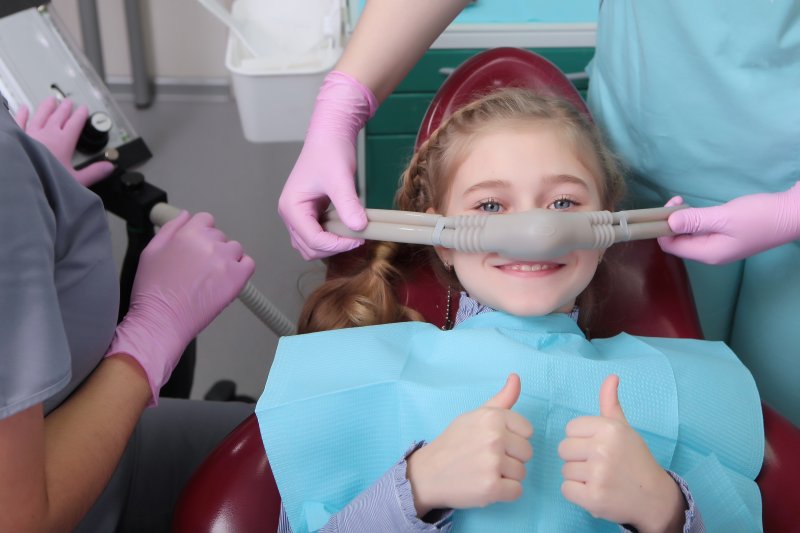Stress-Free Smiles: How Sedation Dentistry Helps Children with Special Needs
December 21, 2024

For children with special needs, dental visits can be overwhelming. Between the unfamiliar sights and sounds and the sometimes-unpleasant sensations of dental instruments, it can be a lot to process. This overload can often make it challenging to get the dental care they need, but luckily some prepared pediatric dentists have sedation dentistry! These medications can help create a calm, stress-free experience for your child. But what is dental sedation, and how does it work? Continue reading to find out!
What Is Dental Sedation?
Sedation dentistry uses medication to help patients relax during their procedures. It can range from mild sedation (to ease nerves) to deeper sedation for more involved treatments. In pediatric dentistry, sedation is carefully administered to exact specifications for each child, ensuring their comfort.
How Sedation Dentistry Helps Children with Special Needs
Children with special needs have a variety of conditions they struggle with including sensory issues, lowered emotional regulation, and behavioral problems. Sedation can:
- Reduce Anxiety: Sedation medications create a deep sense of calm and relaxation, lowering heart rate and alleviating stress.
- Minimize Sensory Overload: Sedation generally dulls the senses, reducing awareness of lights, sounds, and other stimuli in the environment.
- Enable Longer Treatments: Medication makes it easier for dentists to complete necessary care in one session, especially if a child has a hard time sitting still for long periods.
In short, sedation allows dental teams to focus on providing care while ensuring your child feels at ease.
What Types of Sedation Are Available for Children?
Pediatric dentists may use different levels of sedation depending on the child’s needs and the procedure. Common options include:
- Nitrous Oxide: Also known as “laughing gas,” this mild sedative is inhaled through a mask, which helps kids relax.
- Oral Conscious Sedation: This is a liquid medication taken before the appointment that generally eases nerves and provides deeper relaxation.
- IV Sedation: For the most complex cases, this intravenous medication is administered through a small needle in your child’s arm. Oftentimes, this form of sedation makes a child fall asleep during their procedure.
Your pediatric dentist will discuss these options with you at your child’s appointment and help you choose the best one for their needs.
Is Sedation Dentistry Safe?
When working with children, especially those with special needs, ensuring their well-being is the top priority. Pediatric dentists are trained to administer sedation in a controlled manner, constantly monitoring your child’s vital signs to maintain their health and comfort.
As you can see, sedation dentistry is a valuable tool that helps children with special needs receive the dental care they deserve. By easing anxiety and promoting relaxation, sedation creates a more positive experience for both kids and parents alike! So, don’t hesitate to reach out to your child’s dentist and ask about dental sedation at their appointment.
About the Author
If you have a child with special needs who needs dental care, Dr. Allen Pearson has the training and experience to help. He’s a board-certified pediatric dentist with a doctorate from the Creighton University School of Dentistry. For over twenty years, Dr. Pearson has provided compassionate dentistry and care to children of all ages who need it the most. Call (972) 429-7070 to schedule an appointment for your child at Wylie Children’s Dentistry or visit our website to learn more.
